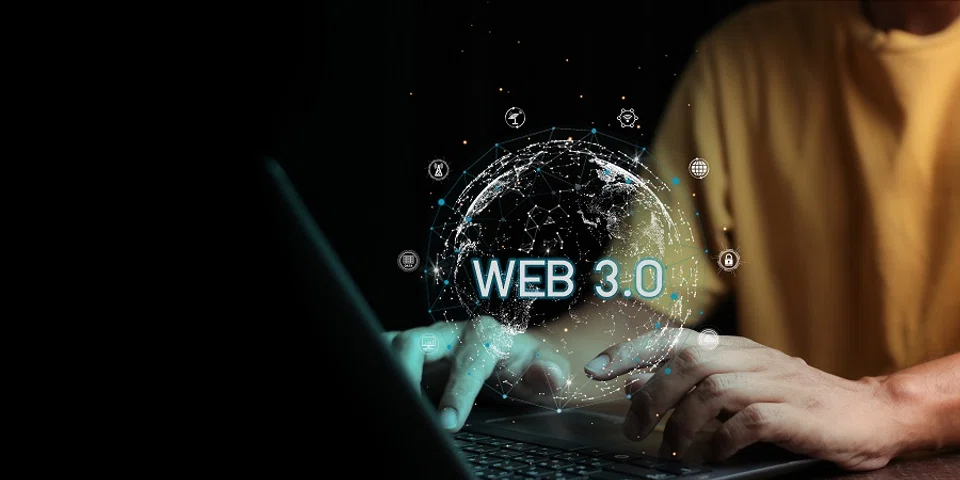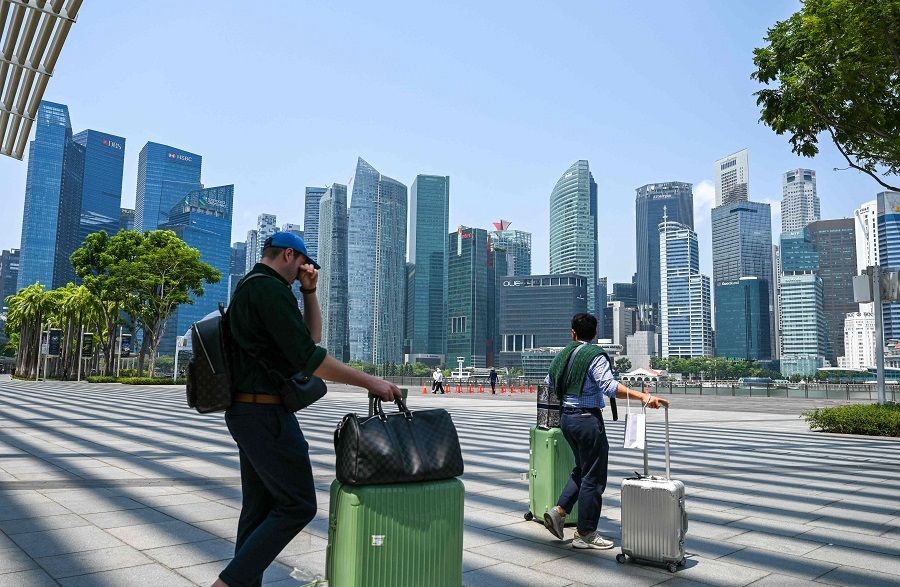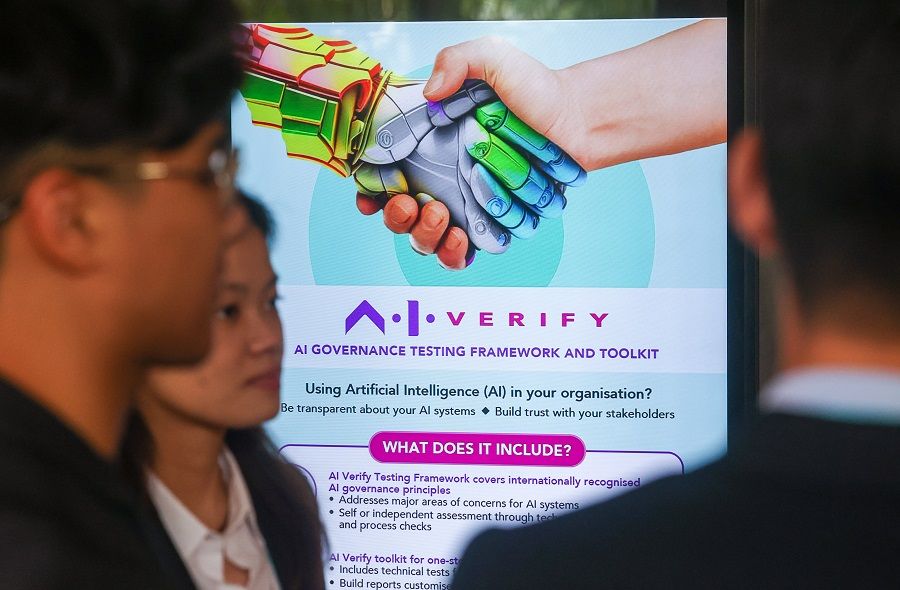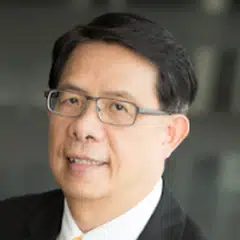Web 3.0 should be a network to create and maintain a global community of shared future

Is Web 3.0 a competitive race or a platform for cooperation? Recently, there has been a lot of buzz about Web 3.0, with reports saying that it has become an emerging area of competition for many financial innovation centres around the world, particularly between Hong Kong and Singapore, which industry players have described as strong contenders in Asia to dominate the development of Web 3.0.
However, I wish for the opposite. I hope that Hong Kong and Singapore will instead cooperate and build a fairer and more democratic next-generation digital network of shared governance and collaboration for the global community. I offer three perspectives.
Web 3.0 will not change national advantages in the real world
First, Web 3.0 is just an open and smart internet of the new era - a network tool whose ultimate value lies in integrating with real-world finance, economy and society. While the large-scale collaboration across time and space offered by Web 3.0 could lead to some winners with data-driven advantage especially in the knowledge-based digital economy, it will not fundamentally change the real-world advantages that certain countries presently hold.
... by leveraging Web 3.0, Singapore could offer better services in digital finance and digital economy to ASEAN countries and even Asia, while Hong Kong could do the same for Greater China.

For example, it will not change Hong Kong's position as China's international window to connect with global businesses, or Singapore's status as an international entrepot trading hub. On the contrary, by leveraging Web 3.0, Singapore could offer better services in digital finance and digital economy to ASEAN countries and even Asia, while Hong Kong could do the same for Greater China. Thus, Web 3.0 is not a zero-sum game for both sides.
A new network to enable a shared future for the global community
Second, a comprehensive and inclusive digital ecosystem requires collective governance, common standards, an open framework and interoperable infrastructure. As we know, the Western technology constructed and dominated the former Web 1.0 and current Web 2.0 and benefited mainly the capitalists in the West. I believe that now is an opportune time to combine the comparative strengths and powers of mainland China, Hong Kong and Singapore to create a new-generation internet to build a fairer, more democratic and collectively governed network that maintains a global community of shared future.
For one thing, China's active participation in building Web 3.0 aligns with the recent Global Security Initiative proposed by China. According to The Global Security Initiative Concept Paper released in February 2023, actively participating in and leading the reform of the global governance system is the responsibility of major country's diplomacy with Chinese characteristics in the new era, while as a responsible major power, China is obliged to actively contribute to world peace and global security.
The concept paper also stated that global security challenges should cover the internet and emerging technologies, and that more platforms and mechanisms for international exchanges and cooperation should be established to encourage broad participation in the development of international treaties, pacts or agreements, or to make institutional arrangements to clarify the rights and obligations of various parties in such exchanges and cooperation.
This reflects the advent of a new era in which emerging and developing countries are also involved in framing the global security governance in critical areas.

Also, the Hong Kong government is committed to making Hong Kong a world leading digital asset and digital finance hub. In early 2023, the government announced in its 2023-2024 Budget plan to develop Web 3.0, in order to promote Hong Kong to become a global virtual asset centre. China can make Hong Kong a testing ground and experimental lab for Web 3.0, while Hong Kong can lean on mainland China's excellent technological capabilities to build a highly efficient and compatible, new-age internet, particularly one that fits global users - including those from the developing countries from the "global south" - by being more in line with their interests. This reflects the advent of a new era in which emerging and developing countries are also involved in framing the global security governance in critical areas.
As for Singapore, it can play to its advantage as a highly internationalised country, including international connectivity in fintech, such as the global fintech alliances and international innovative collaboration platforms, as well as its experience in setting international digital regulations and standards. Singapore therefore can help to build a new, more inclusive multilaterally governed collaborative platform that combines the wisdom of the East and West and which is endorsed by developed and developing countries alike.
Both Singapore and Hong Kong can set up a collaborative platform, such as a foundation, and tap on the open-source community to conduct research and development...
Tapping on the open-source community
Third, Web 3.0 is an innovative combination that has much to do with elements such as distributed or decentralised finance (DeFi), the metaverse, and digital assets including non-fungible tokens (NFT) and decentralised autonomous organisations (DAO). Web 3.0 and these elements are still in their nascent development stages and would require large capital outlay as well as innovative research and development.
Singapore and Hong Kong can leverage their positions as international finance hubs, as well as their information and digital technology infrastructure, to provide the right conditions to drive the innovative development of Web 3.0. Both Singapore and Hong Kong can set up a collaborative platform, such as a foundation, and tap on the open-source community to conduct research and development which can expedite and amplify technological advances, towards a governance structure of "co-create, co-govern, co-prosper" philosophy.

Singapore has some experience in this area. In May 2022, the Infocomm Media Development Authority (IMDA) created AI Verify, the world's first verification system which can be used to verify the performance of AI systems in areas such as security and reliability. In June this year, IMDA released the source code for AI Verify, and set up the world's first not-for-profit AI Verify Foundation. Besides policymakers, the Foundation welcomes the participation of developers, businesses and users both local and overseas, counting on the collective effort and contribution from this international open-source community to develop the AI governance testing toolkit, so as to achieve responsible use of AI and to push for best practices and standards for AI.
If mainland China, Hong Kong and Singapore can combine their comparative strengths and advantages, and work together to create a new collaborative Web 3.0 for the next generation, it would be a major contribution in the global push for sustainable, inclusive and peaceful development for the world.
This article was first published in Lianhe Zaobao as "Web 3.0应是维系全球命运共同体新网络".
